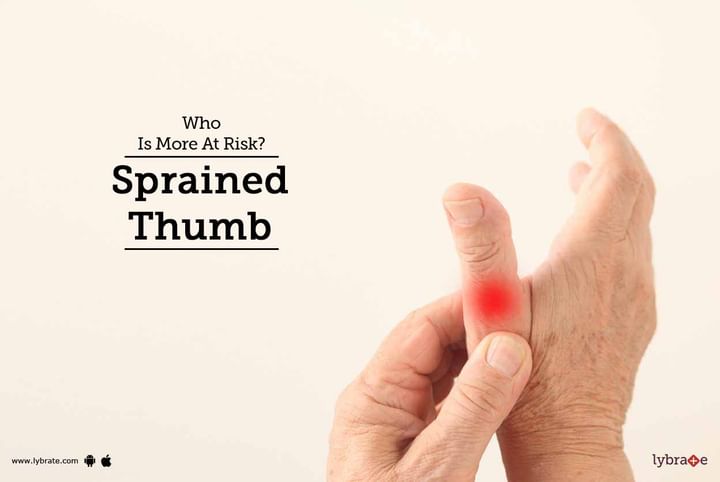Sprained Thumb - Who Is More At Risk?
A sprained thumb is a painful condition caused due to an injury on the ligament of a thumb. A ligament is a soft tissue, which connects bones to each other at a joint. The ligament might get partially or fully torn due to extreme backward bending of thumb causing the ligament connecting the thumb and index finger to suffer injury.
The problem is quite common among basketball, rugby and football players. For this reason, it is known as a sports injury. Skiing may also cause extreme pressure to the thumb, causing a ligament tear. Injury due to skiing is called skier’s thumb.
The injury causes pain, bruising and tenderness. It can cause swelling on just the thumb or sometimes on the entire hand. In severe cases, weakness and instability in the region can be seen. A sprained thumb weakens the ability to pinch and grasp things. The patient will have trouble holding a glass, turning a knob or writing. An untreated injury may lead to joint stiffness, muscle weakness, scar tissue formation, instability of the thumb or even arthritis. It is strongly advised to visit a professional therapist for an early diagnosis and treatment.
Usually, an X-ray leads to an apt diagnosis of the injury. The doctor also ascertains damage to the bone and ligament and develops a treatment plan. Some ligament tears can be treated using a splint or cast. A chronic ligament tear might not heal and would require surgical intervention.
A partial or mild ligament tear can be managed through useful home remedies like putting an ice pack, bandage or splint. It is also advised to keep the thumb elevated and restrict its movement. A heat pack is beneficial as it can ease pain and relax the muscles. However, heat pack must be avoided during the first 48 hours of injury as it can lead to bleeding.
If there is a chronic injury and the ligament is completely torn, a surgery is needed. A surgery helps join a new ligament to the bone in case the torn ligament fails to heal. It also helps reconnect the injured ligament to the bone. Sometimes, there might be bone damage as bone fragments might get pulled away with the ligament. In such cases, bone fragments need to be put back in their position through surgery. After the surgery, a cast or splint is put till it heals completely.
An early visit to a physiotherapist has potential advantages. A therapist can fasten the healing process, help relieve pain and improve a person’s ability to resume daily tasks. Massages and strengthening exercises are initiated to avoid re-injury and instill strength in the injured region. Physiotherapy also helps immensely after surgery through planned mobility exercises that regain movement and strength.



+1.svg)
